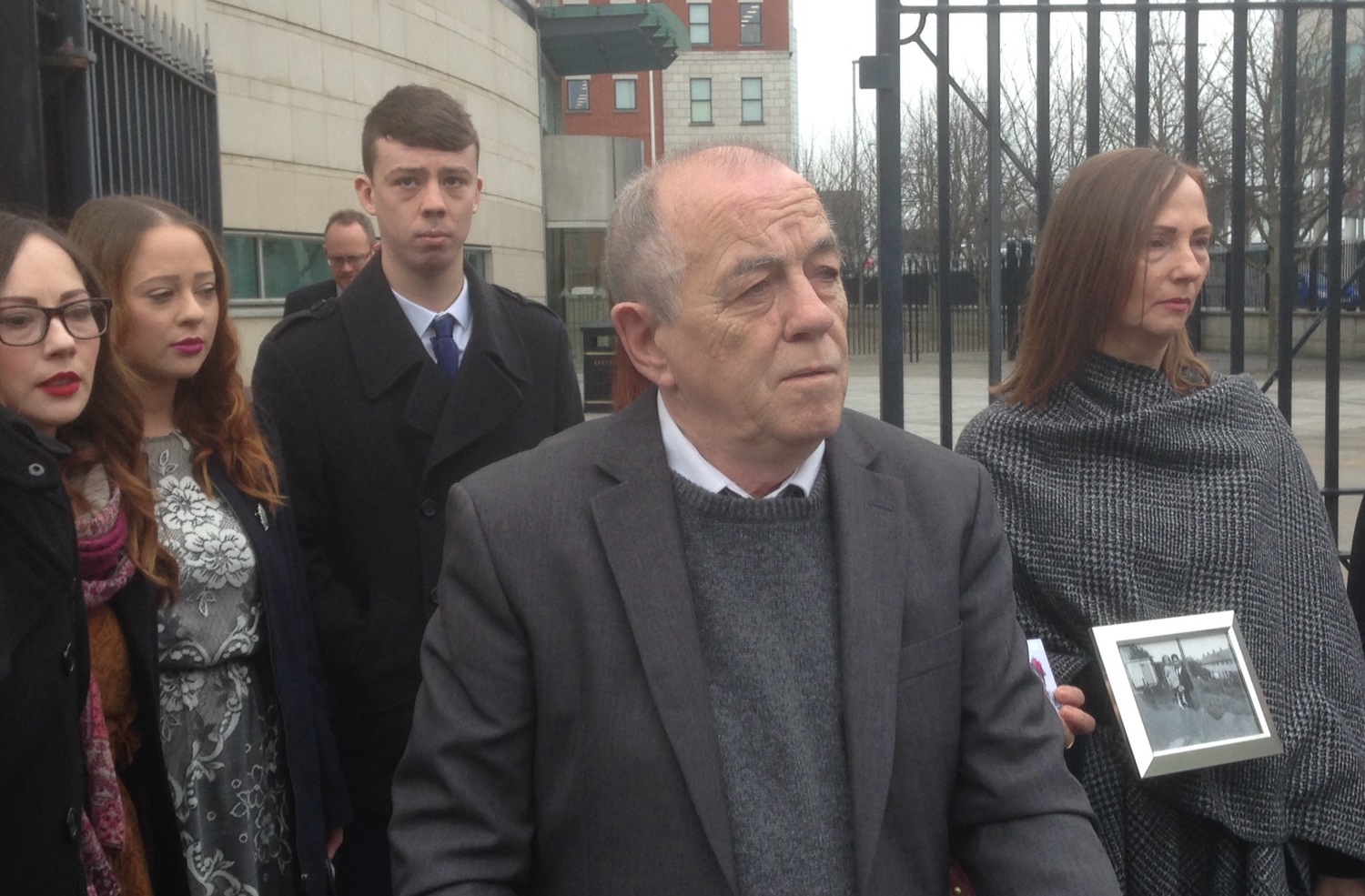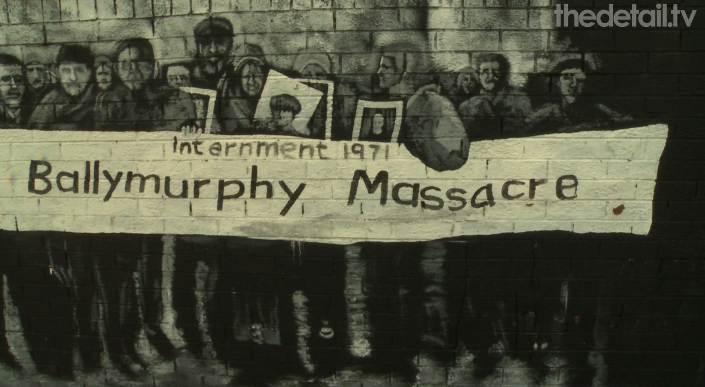By Niall McCracken
A man convicted of rioting in Ballymurphy in 1971 where soldiers shot dead his brother and nine other people has had his conviction overturned.
Terry Laverty’s case had been referred to the Criminal Case Review Commission (CCRC) after a solider who was a key witness in the original trial retracted his statement.
Speaking outside court today the 61-year-old said his name was now cleared, but that the conviction had been a heavy blow.
“It’s not easy to describe the pain I went through.
“My family was totally shattered, everyone of my brothers and sisters were totally shattered.
“All along I was an innocent man, along with everyone else in Ballymurphy, the people who died.”
He said all those affected by the tragic events in what has become known as the Ballymurphy massacre deserved to see the full truth of what happened revealed.
Recounting how his brother John was shot dead in August 1971 at the age of 20, Mr Laverty added: "As he lay in the street bleeding to death I was being arrested, just yards away.
“It was two days before I knew he was dead and almost two days before my parents knew that I was not.”
Mr Laverty, who was aged 18 at the time of the events said: "I was not rioting. There was no riot.”
Over three days in August 1971 eleven people were killed by British troops in the Ballymurphy and Springhill area in West Belfast.
Ten of the victims were shot dead, while another was wounded and died of a heart attack.
Eleven families lost loved ones and a total of 57 children were bereaved.
The events unfolded hours after the government introduced a policy of internment – the controversial detention of paramilitary suspects without charge or trial.
At the time army officials claimed troops opened fire in response to shots from republican paramilitaries – though this was rejected by the bereaved.
Families of the victims say the case raises serious questions over the human rights record of the army in Northern Ireland.
Terry Laverty was convicted of riotous behaviour for the events that unfolded in the early hours of 11 August 1971 in Ballymurphy Belfast.
He was sentenced to six months imprisonment.
After an application by Mr Laverty’s legal team, the CCRC found that there was “a real possibility that the court will set aside Mr Laverty’s conviction and find him not guilty on a rehearing."
As a result the conviction was referred back to the county court.
The CRC decision to refer Mr Laverty’s case was based on new information that “the sole evidence upon which Mr Laverty’s conviction rests has been retracted by the witness and that, as a result, there is a real possibility that the court will set aside Mr Laverty’s conviction and find him not guilty on a rehearing."
Today a hearing in Belfast’s Laganside court complex was told the Public Prosecution Service was not opposing the appeal and Judge Jeffrey Miller said the riot conviction would be “stricken from the record of Mr Laverty”.
Speaking after today’s decision Mr Laverty recalled the bleak episode in his family’s life.
“That Christmas, there were no celebrations in the Laverty household," he said.
“There were no lights, no trees, no laughter. Seven children were grieving the death of one brother and missing another who at 18 years old was spending Christmas in prison.
“I had been wrongly convicted of riotous behaviour and imprisoned.”
Speaking after today’s hearing Mr Laverty also thanked the victims’ group Relatives for Justice (RFJ), saying it had supported him for a decade. RFJ Deputy Director Andrée Murphy said the decision in Mr Laverty’s case represented an important development that would encourage others to come forward.
Mr Laverty’s legal representative, Joe McVeigh from KRW solicitors in Belfast, said: “Terry Laverty has now had his conviction and sentence for a miscarriage of justice reviewed and quashed after 44 years. His innocence of this crime has been proved.”
Families of the Ballymurphy victims have been campaigning for a full public inquiry into the shootings.
An inquest into the 10 deaths caused by gunfire was ordered by Attorney General John Larkin QC in 2011.
In recent years the families have also been campaigning for an inquiry similar to the model used to examine the Hillsborough football disaster of 1989 which would review all documents relating to the deaths of their loved ones.
In a previous interview as part of The Legacy series professor Phil Scraton, a key architect of the Hillsborough Model, said he believed it could be used to examine controversial killings from the Troubles.
However as reported by The Detail in April last year, the British Government rejected calls for the independent probe into the deaths.
 By
By

